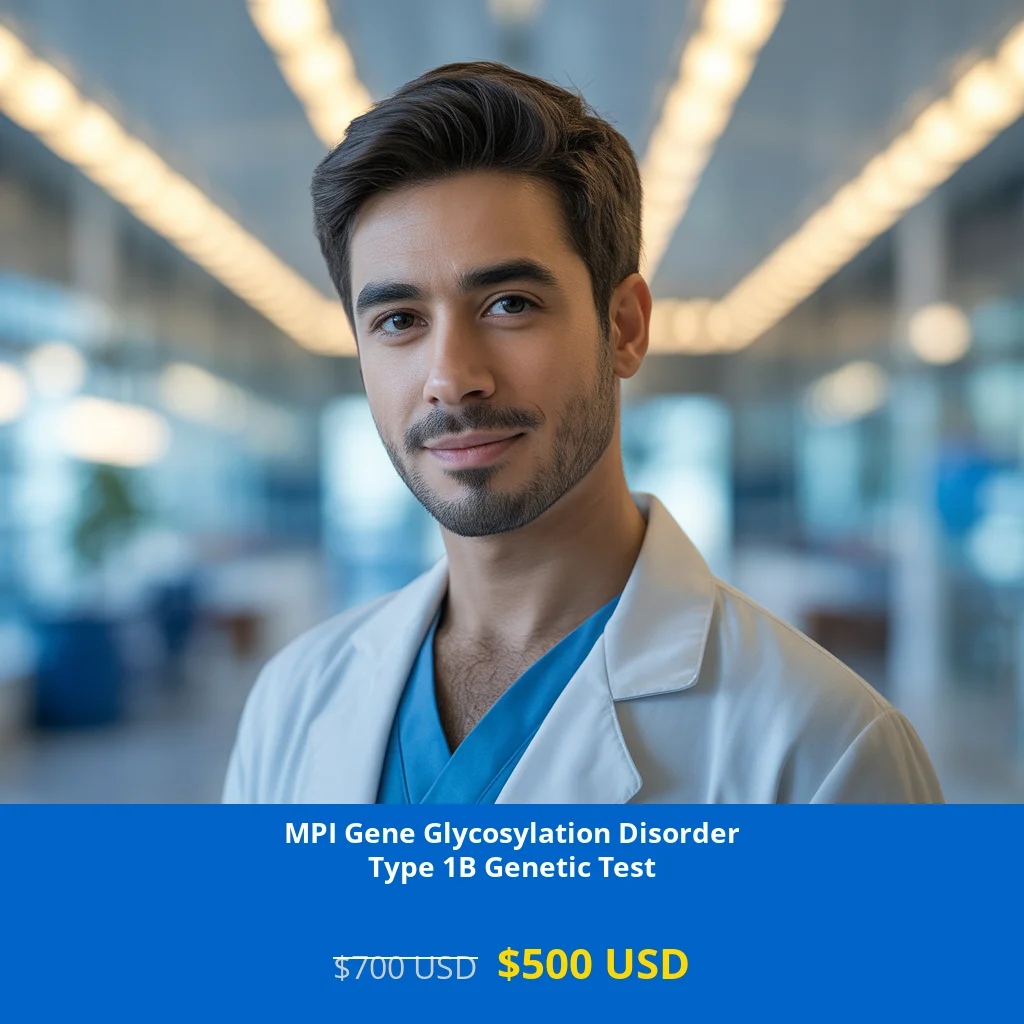MPI Gene Glycosylation Disorder Type 1B NGS Genetic DNA Test
Comprehensive Introduction to MPI Gene Testing
The MPI Gene Glycosylation Disorder Type 1B NGS Genetic DNA Test represents a breakthrough in metabolic disorder diagnostics, offering precise detection of genetic mutations responsible for congenital disorders of glycosylation. This specialized test focuses on the MPI (mannose phosphate isomerase) gene, which plays a critical role in the proper glycosylation of proteins essential for normal cellular function and organ development.
Glycosylation disorders represent a group of rare inherited metabolic conditions where the process of adding sugar molecules to proteins is disrupted. Type 1B specifically involves defects in the MPI gene, leading to impaired phosphomannose isomerase activity. This enzyme deficiency disrupts the normal synthesis of glycoproteins, affecting multiple biological processes throughout the body.
What This Advanced Test Detects
Our NGS Genetic DNA Test specifically identifies:
- Pathogenic variants in the MPI gene coding regions
- Missense, nonsense, and frameshift mutations affecting enzyme function
- Single nucleotide polymorphisms associated with glycosylation disorders
- Copy number variations impacting gene expression
- Regulatory region mutations affecting protein synthesis
The test utilizes next-generation sequencing technology with 99.9% accuracy, providing comprehensive coverage of all exons and flanking intronic regions of the MPI gene. This advanced methodology ensures detection of both common and rare genetic variants that contribute to glycosylation disorder type 1B.
Who Should Consider MPI Gene Testing
Clinical Indications and Symptoms
This genetic test is recommended for individuals presenting with:
- Unexplained liver dysfunction or hepatomegaly
- Recurrent hypoglycemic episodes
- Coagulation abnormalities and bleeding tendencies
- Protein-losing enteropathy or gastrointestinal issues
- Developmental delays in infancy or childhood
- Failure to thrive despite adequate nutrition
- Family history of metabolic disorders
- Unexplained neurological symptoms
High-Risk Populations
- Children with persistent gastrointestinal symptoms
- Patients with abnormal liver function tests
- Individuals with family history of glycosylation disorders
- Newborns showing feeding difficulties and growth concerns
- Patients with unexplained coagulation abnormalities
Significant Benefits of Early Detection
Undergoing MPI Gene Glycosylation Disorder Type 1B testing provides numerous advantages:
Medical Management Benefits
- Enables targeted treatment with mannose supplementation
- Facilitates early intervention to prevent complications
- Guides nutritional management and dietary modifications
- Supports monitoring of liver function and coagulation parameters
- Provides basis for personalized medical care plans
Family Planning Advantages
- Offers accurate genetic counseling for family members
- Enables prenatal diagnosis in future pregnancies
- Provides recurrence risk assessment for siblings
- Supports informed reproductive decision-making
Understanding Your Test Results
Interpretation Guidelines
Our comprehensive genetic report includes detailed interpretation of your results:
Positive Result
A positive result indicates the presence of pathogenic mutations in the MPI gene, confirming the diagnosis of glycosylation disorder type 1B. This finding enables:
- Initiation of appropriate medical treatment
- Implementation of dietary management strategies
- Regular monitoring of affected organ systems
- Genetic counseling for family members
Negative Result
A negative result suggests that no pathogenic variants were detected in the MPI gene. However, this does not completely rule out other forms of glycosylation disorders, and further testing may be recommended based on clinical presentation.
Variant of Uncertain Significance
Some genetic changes may be classified as variants of uncertain significance. In such cases, additional family studies or functional testing may be recommended to determine clinical relevance.
Test Pricing and Availability
| Price Type | Amount (USD) | Details |
|---|---|---|
| Discount Price | $500 | Limited time offer for comprehensive testing |
| Regular Price | $700 | Standard pricing for advanced NGS analysis |
Test Specifications
- Turnaround Time: 3 to 4 Weeks
- Sample Type: Blood, Extracted DNA, or One Drop Blood on FTA Card
- Methodology: Next-Generation Sequencing (NGS) Technology
- Specialty: Metabolic Genetics
- Department: Genetics
Pre-Test Requirements
Before undergoing testing, patients should provide:
- Complete clinical history relevant to glycosylation disorders
- Participation in genetic counseling session
- Family pedigree chart documenting affected relatives
- Informed consent for genetic testing
Nationwide Testing Availability
We proudly serve patients across the United States with convenient testing locations in all major metropolitan areas including New York, Los Angeles, Chicago, Houston, Phoenix, Philadelphia, San Antonio, San Diego, Dallas, San Jose, Austin, Jacksonville, Fort Worth, Columbus, San Francisco, and many other cities. Our network of certified genetic testing facilities ensures accessibility and convenience for patients nationwide.
Take Action Today
Don’t wait to get the answers you need for proper diagnosis and treatment. Early detection of MPI gene mutations can significantly improve clinical outcomes and quality of life. Our team of genetic specialists is ready to guide you through the testing process and provide comprehensive support.
Call or WhatsApp us today at +1(267) 388-9828 to schedule your MPI Gene Glycosylation Disorder Type 1B NGS Genetic DNA Test. Our genetic counselors are available to answer your questions and help you understand the testing process, benefits, and what to expect from your results.
Take the first step toward accurate diagnosis and personalized treatment by booking your test now. With our discounted price of only $500 USD, advanced genetic testing for metabolic disorders has never been more accessible.







